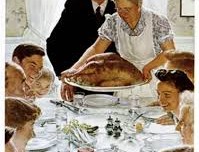 I am not saying that music is not helpful in your digestion or in your love life, but a recent compilation of multiple scientists’ research makes a strong case that music is a wonderful assist for your older loved one’s sleep … or for your sleep or anyone’s sleep. When I say multiple scientists’ research, it is a method called meta-analysis that systematically analyzes findings from a series of studies of a given subject and quantifies the consensus or lack of consensus.
I am not saying that music is not helpful in your digestion or in your love life, but a recent compilation of multiple scientists’ research makes a strong case that music is a wonderful assist for your older loved one’s sleep … or for your sleep or anyone’s sleep. When I say multiple scientists’ research, it is a method called meta-analysis that systematically analyzes findings from a series of studies of a given subject and quantifies the consensus or lack of consensus.
All of us at one time or another have “lost sleep” over some worries or events or maybe something we ate. But it’s estimated that as many as 40% to 70% of older adults have fairly routine sleep disturbance, and it takes a toll on these individuals’ cognition, not to mention mood and general temperament.
Analyzing their data from five randomized trials, these researchers found that music statistically significantly improved sleep quality. There also was a statistically significant difference with those who listened to more “sedative” music reporting better sleep outcomes than those listening to more “rhythmic” music. And the longer subjects listening to their settling music, the better their sleep patterns.
So, what does this translate into for your recommendations to your older loved ones or to put into practice for yourself? Sedative music was more clearly defined as having a slower tempo of about 60 to 80 beats per minute, a smoother melody line, no percussion and a lower volume. In short it’s music that is all the things that a rock concert is not. And that four week difference I cited. When cultivated as a long term habit, music can improve one’s sleep … and therefore, life … in a very tangible and sustainable way.
So, next step is to sort out your music library, and then, well sleep on it.
Charlotte Bishop is a Caregiver Coach, an Aging Life Care Advisor, a Geriatric Care Manager and founder of Creative Care Management, certified professionals who are geriatric advocates, resources, counselors and friends to older adults and their families in metropolitan Chicago. She also is the co-author of How Do I Know You? A Caregiver’s Lifesaver for Dealing with Dementia.





